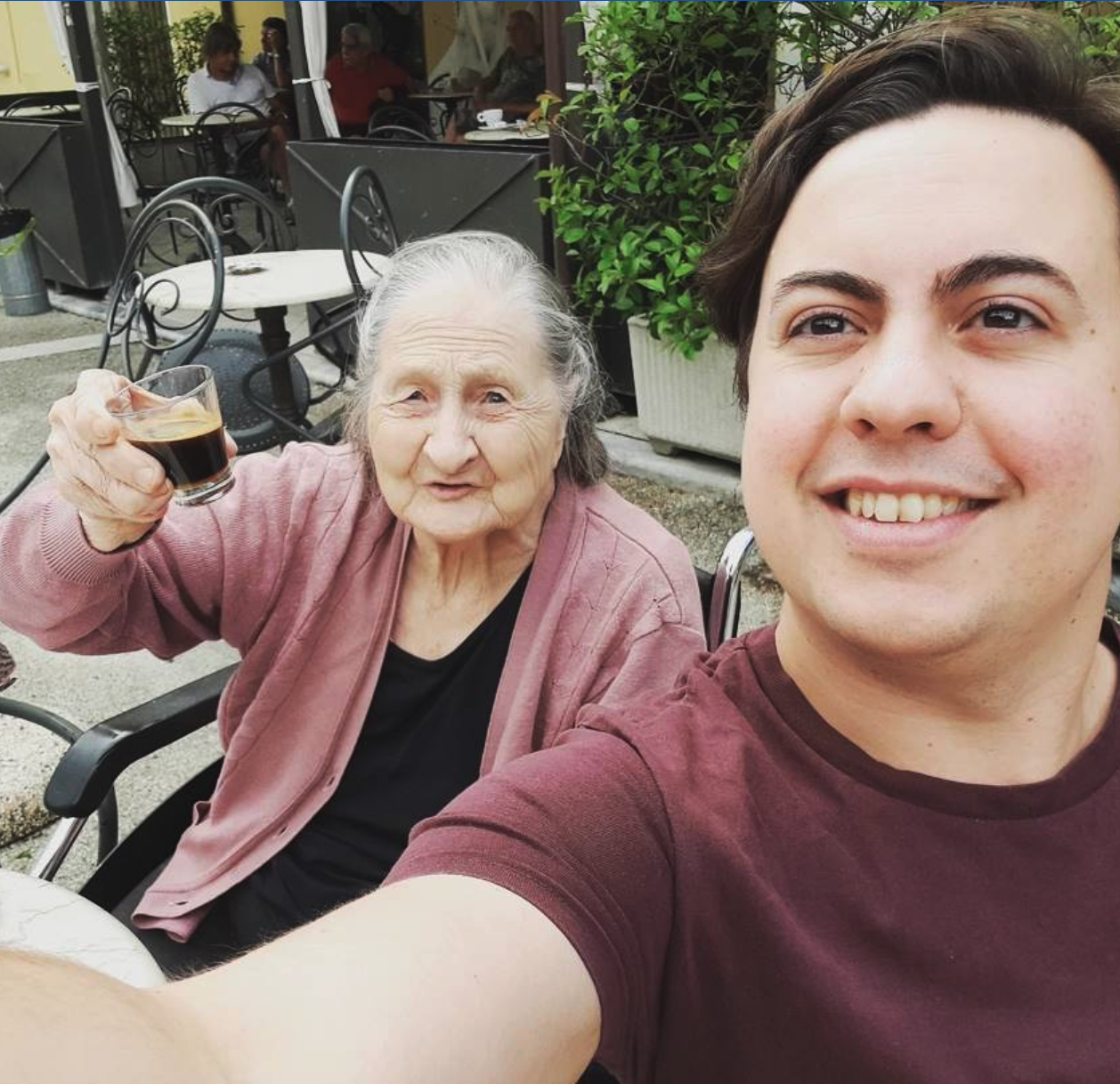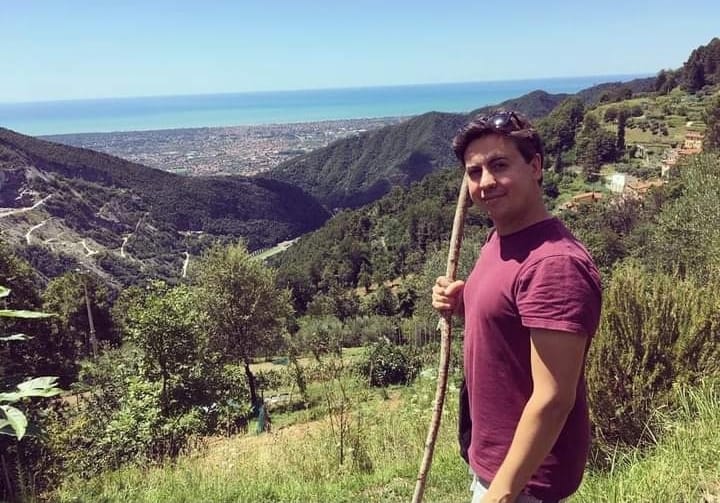

For those who, like us, have decided to live in a European Union country, for training, employment and/or personal life choices, the concept of a united Europe is anything but abstract. We enjoy widespread rights and freedoms, which for us are now taken for granted, whereas they were unthinkable things for the generation of our parents or grandparents: the freedom to move freely across borders, the freedom to do business, to work and study in different countries, the possibility of exercising the right to vote, albeit only at municipal level, where one lives and to be able to decide whether or not to vote for the European lists of the countries of residence, without having to give up one’s citizenship, are some of the privileges we enjoy as citizens of the European Union.
However, our concrete experience also tells us that there are still too many differences between countries, especially in the area of labour protection, health care and portability of rights. Each country has its own autonomy in many of these areas; however, greater European integration must and can take place and I believe that it is one of the main duties of those elected abroad to work to create political relations between countries so that national legislations also evolve and support the development of European policies that are more inclusive and supportive: our experiences in the various countries are an added value that we bring to support the political and social development of Italy.
Finally, it is at the European level that we must address some complex and global issues on which individual states can do little, the main issues for me are: (a) the issue of migration and the issue of hosting, so that people who want to seek better life options in Europe, who are fleeing from wars, hunger and disease, are protected, with a solidaristic and positive, better regulated approach to address the phenomenon and not just react, which is the only way to take the issue away from the xenophobic rhetoric of the right-wing. Next, (b) the issue of unfair competition and social dumping between countries within the EU on labour costs and therefore on wages and social and economic protections.
-
Strengthening cooperation between akin political groupings in several national parliaments
-
Amendment of the Dublin Treaty
-
Rethinking reception policies so that the issue of migration is not left to the securitarian rhetoric of right-wingers.
-
Commitment to the strengthening of European integration, discussion on a federal Europe or the model of the Republic of Europe through inputs for the relaunch of a constitutional reform process
Our community experiences special conditions, which also give rise to specific needs that oftentimes are not contemplated in national political programmes. In many contexts, the relationship with consular services is a major problem in the daily life of Italians abroad. The same applies to the support offered for those who want to do business, for the teaching of the Italian language and for the promotion of culture. Those are all areas in which indiscriminate spending reviews have gradually been made, resulting in the impoverishment of one of the strategic sectors for internationalisation and thus for the creation of trade and economic networks. Next, we need to radically overhaul the regulations governing the representative structures of the Comites and the CGIE. This has been talked about for years, but without ever arriving at a real reform project.
-
Investment in consular services with a focus on digital transition, to facilitate access to basic services, from requests for documents and/or document copies to certifications
-
Ad hoc services for those who want to do business, with a support service in the target countries, to promote the brand “Italy”
-
Expansion of investments for the promotion of the Italian language and culture in the world, also through bilateral agreements with EU countries, so that Italian becomes a language increasingly taught also in local schools
-
Reform of the law on Comites, with the abolition of the inversion of the option (i.e. the need to pre-register in order to then be able to vote) and reform of the CGIE along the lines already drawn up by the CGIE itself.
-
Commitment to strengthening bilingualism for second generations.
-
Recognition of qualifications abroad
Labour is the core issue of every social democratic agenda, and it is a core issue for me, too: there are frightening discrepancies in wages as well as in the protection of workers. Italy has no minimum wage and this is unacceptable. In Article 36, our Constitution states that ‘the worker has the right to remuneration commensurate with the quantity and quality of his work and in any case sufficient to ensure for themselves and their family a free and dignified existence’. And yet, we know that labour exploitation is the daily bread in many economic sectors: hourly wages well below all expectations, precarious and unstable contracts or, not uncommonly, undeclared work, where minimum guarantees are denied. I think the introduction of a minimum hourly wage of no less than EUR 8 gross is a moral obligation.
The German experience offers excellent food for thought and a strong basis from which to build: a commission must be set up to follow the development of the measure, give an annual evaluation and offer programmes for implementing the legislation, for a gradual increase of the minimum hourly wage over time. In addition, an ad hoc data collection service must be set up to collect complaints of non-compliance, so that any attempt at further exploitation and circumvention of the rules is countered. Indeed, numerous experiences abroad have indicated the extreme importance of the control instance for effective law enforcement.
Finally, along with the introduction of a minimum hourly wage, two other fundamental and interrelated things must be achieved, that is, (a) the optimisation of welfare systems, with a reform of the rules to tackle poverty and social exclusion on the one hand, and (b) a reform of the law on trade union representation and collective bargaining on the other. These goals are those that emerged from the agora I promoted in November 2021 together with Simone Oggioni of Art.1, Emanuele Felice, former PD economic resp., PD circles in Berlin and Brandenburg, Triuggio, Stockholm, Copenhagen, Vienna and the CGIL.
-
Introduction of a minimum hourly wage
-
Trade union representation reform
-
Optimisation of welfare systems
Directly related to the topic of work, and the quality of work in particular, is work training. I have long supported political exchanges between Italian and German PD federations on the topic of school/work training on the German model. The path to professional growth must go through training. Girls and boys must be able to choose which path to follow. While in Germany technical-professional studies enjoy an excellent reputation and are effective routes to employment for thousands of young people, in Italy there remains a negative prejudice and a total lack of attention in the world of vocational training.
It must be a priority to invest resources to improve training and job placement systems, both at school and through retraining for people who leave the labour market, enter social assistance and then find themselves left to their own devices. In addition to economic support, they must also be given the opportunity to ‘retrain’ professionally, with training, further education and specialisation courses. And this regardless of age. There are not only scientific-academic and international excellences to be given attention. There is a world that has hitherto been abandoned to itself, which can be a driving force for the relaunch of the country’s economy, especially in the most disadvantaged areas, the rural ones – which have been left to the forces of the populist right – and the peripheral ones, in the North as well as the South.
-
Introduction of the dual school/work system as per the German model
-
Investment in lifelong learning and internationalisation
-
Introduction of vocational retraining paths for the short- and long-term unemployed as a supplementary component to social support instruments
-
Support for networks of Italian researchers abroad, in order to valorise experiences and share knowledge.
The battle for rights is an unavoidable battle. I say rights, without further specification, because there is no opposition between civil rights and social rights. In fact, it is necessary to intervene, as I have explained in the previous points, in the world of work and education in a massive and radical way to give true fulfilment to constitutional principles. And this battle goes hand in hand with that for the recognition of civil rights and freedoms: combating all forms of discrimination, striving for true empowerment of women, equal rights for LGBTQI* persons, i.e. a strong and clear commitment to same-sex marriage, adoption for singles and same-sex couples – since adoption is a right of girls and boys to have those who care for them and ensure their positive development -, reform of sex-change regulations for transgender people, and an investment in education, at every school level and grade, as well as in all areas of public administration, from bureaucratic offices to the police force, and in the army. We need to educate and raise awareness across the board, because expanding rights makes society more open and integrated.
-
Egalitarian marriage
-
Reform of adoption regulations
-
Inclusion of training and awareness-raising paths for public administration employees in terms of intercultural competences and anti-discrimination prevention
-
Framework law against discrimination on the grounds of gender, sexual orientation, ethnic origin, religion, ableism, transphobia and personal characteristics (language, weight, illness, age…).
-
Opposition to reparative theories
Sustainability is a broad term, both from a social and environmental point of view. The energy crisis triggered by Russia’s war against Ukraine has exposed all the inconsistencies, delays and mistakes in the energy policy of countries within the EU. We need a complete rethink of the economic development model, with serious investments in renewable energies and a strategy to reduce polluting emissions to combat global warming.
We need national policies that always take environmental factors into account, along with social ones. We need to strengthen clean energy production networks in Italy, from wind, solar and water sources. We need to reduce dependence on foreign gas, especially from illiberal countries where human rights are not respected. We must go back to valuing rurality, local communities as centres of development and environmental promotion. The political aim is to combine economic needs with social and environmental sustainability, with a real social responsibility spread between companies and citizens, between citizens, companies and the state.
-
Investment in environmental policies that enhance renewable energy
-
Rediscussion of energy agreements with countries where systematic human rights violations take place
-
Policies for local communities and rurality (small villages, mountain communities…)
The fight against international organised crime is a duty, since many economic sectors are polluted by the criminal action of groups of various kinds. The Italian experience of combating the mafia phenomenon is paradigmatic. It is necessary to create synergies between countries and try to promote the homogeneous development of legislation that effectively combats money laundering, corruption and tax evasion.
-
Creating exchanges between countries to fight organised crime.
inally, the theme that brings it all together, the polar star of my political action is the realisation of social, economic, environmental and generational equity. Concrete actions must concern, for example, progressive taxation in a coherent tax system.
Work, training, sustainability and rights are the ingredients for the realisation of substantial equity. Equity is an objective in itself, which must characterise the political action of a left-wing, social-democratic and progressive force and thus the action of the elected representatives in the democratic institutions of the country.
“I hope I have your trust”
My name is Federico Quadrelli, I am 35 years old, and I was born in Pietrasanta, in the beautiful historical Versilia, Tuscany. I studied Sociology and Social Research in Milan and then moved to Berlin, where I have lived for 10 years now. Here I started to write a new chapter of my life: I obtained a second degree in European Studies so that I could learn German as well as I could, and for the past year I have had a research grant at the University of Kassel with the Friedrich Ebert Foundation for a PhD. I come from a family that has supported me a lot on my life path, despite their limited financial resources.
My biggest thanks go to my parents. I studied with a scholarship and worked at the same time: I have been a call-center operator, an employee for multinational companies and also a factory worker, because I did not want to burden my family, which was already making many sacrifices to allow me to study. And now here I am: I have graduated, lived in a different country from where I was born, learnt German and developed new relationships. I am socially and politically involved in Italy and in Germany, in the PD and in the SPD, against discrimination, for a fairer and more tolerant society, for the young and the old, because I believe a new generational pact is fundamental; against social exclusion and for decent work, so that there really is equality of opportunity. And believe me, I know, I have experienced all these difficulties first hand. I am now a German-Italian, because I believe that the acquisition of the citizenship of the country in which one resides is important for a true and accomplished integration. That is why I want to commit myself to the full recognition of the rights of all. I have been committed for so long with the aim of contributing, in my own small way, to the realisation of a fairer society, of a more united Europe, of a fairer Italy.
I hope to have your trust, in this titanic challenge that awaits us.
Federico



